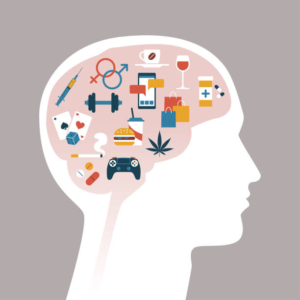 The holiday season is often portrayed as a happy, carefree, and spiritual time filled with gatherings of family and friends, religious activities, celebrations, and as a time to relax and reflect back on the year that is ending. For many individuals, however, this time of year, between Halloween and New Year’s, can be highly stressful and emotionally challenging. As a result, substance abuse can and often does increase during the holidays. Various factors such as relationship losses, loneliness, financial pressure, grief, and unrealistic expectations can contribute to emotional distress, leading some people to cope by turning to alcohol and/or drugs.
The holiday season is often portrayed as a happy, carefree, and spiritual time filled with gatherings of family and friends, religious activities, celebrations, and as a time to relax and reflect back on the year that is ending. For many individuals, however, this time of year, between Halloween and New Year’s, can be highly stressful and emotionally challenging. As a result, substance abuse can and often does increase during the holidays. Various factors such as relationship losses, loneliness, financial pressure, grief, and unrealistic expectations can contribute to emotional distress, leading some people to cope by turning to alcohol and/or drugs.
Social events during the holidays often revolve around using intoxicants, which is not only allowed but encouraged in many realms of life, from family gatherings, to social environments, to celebrations at work settings. In 2023 the American Psychological Association found that 89% of U.S. adults experience stress during the holiday, along with 41% noting that their stress intensifies (“Even a Joyful Holiday Season Can Cause Stress for Most Americans,” 2023). Many people experience anxiety, depression and even despair or suicidal thoughts during this time of year as a result of the additional stress, and feeling down and out of sorts can often lead to over-indulging in the use of substances.
The various consequences of holiday substance use and abuse are serious. Drunk driving incidents tend to rise, emergency room visits increase, and relationships often become strained or damaged. Families are especially affected, and celebrations can turn tense and even dangerous due to substance-fueled behavior.
I personally have always thought it strange that most people equate celebrations and holidays with the use of alcohol or other mood-enhancing substances. Instead of getting together to construct a celebratory atmosphere amongst the people involved by creating or enacting ceremonies, rituals or other behavioral forms, people very often use alcohol as a social lubricant in an attempt to create a celebration or party-like atmosphere. People often come to rely on lubricants to provide that holiday cheer, and this is a slippery slope.
Ultimately, while the holidays can be difficult, they don’t have to lead to substance abuse. With understanding, preparation, and compassion, individuals and families can create healthier traditions and a more supportive environment for everyone—especially those at risk of relapse or who are struggling with addiction. For someone struggling with addiction, even well-meaning invitations can create pressure or temptation. People may drink to fit in, to reduce anxiety, or to numb feelings of sadness or isolation. Additionally, those already battling substance abuse might find it harder to manage their triggers during this emotionally charged time.
It is, therefore, important to raise awareness and offer support. Friends and family can help by encouraging sober activities. A little understanding of those in recovery can go a long way. It is important to not pressure people to drink or use substances. And after a few drinks or some drug use, people often do not recognize that critical decision-making abilities and driving-related skills are diminished long before they show overt signs of intoxication. Many of us look forward to celebrations during the holidays, yet it is also a time when some people are more likely to drink or drug beyond their limits than at other times of the year. Dont be afraid to seek help from a medical professional or from a counselor or therapist. That is what we are here for.
By: Terry McMaster, LMSW, EAP Counselor
